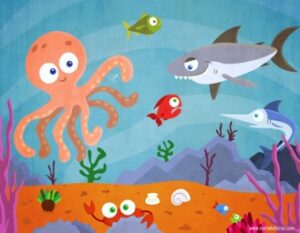
Sampaio, Eduardo, Martim Costa Seco, Rui Rosa, and Simon Gingins. 2020. Octopuses Punch Fishes during Collaborative Interspecific Hunting Events. Ecology, December, e03266. https://doi.org/10.1002/ecy.3266
Species Interactions
In nature, species interact in a variety of ways. When interactions are between members of the same species, it is called an intraspecific interaction. While interactions between two or more different species is called interspecific. These events are often classified as either short-term or long-term. There are several types of interactions and they may be positive, negative, or neutral for all species involved.
Types of species interactions:

- Predation: killing and eating another organism
- Pollination: fertilizing a plant by transferring pollen
- Competition: struggle between organism for resources such as habitat, food, mates
- Symbiosis: close, long-term interaction between organisms which may be positive, negative, or neutral for each species
Sometimes these interactions are found in the most unlikely of places!
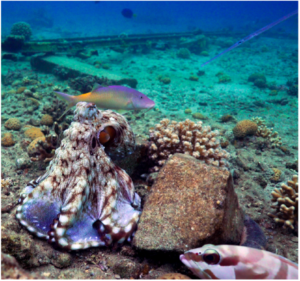
Study methods
Sampaio and collaborators set out to study octopus behaviour. In this study they utilized my FAVOURITE study method – SCUBA diving!
This study took place over two days in Israel, and three days in Egypt. The species of study was Octopus cyanea, the “big blue octopus”. Eight different hunting events were video recorded for later examination. The events all focused on different individual octopuses and different interacting fish species.
The great octopus hunt
When the authors examined the recorded videos, they discovered that octopuses form hunting parties with other species. These interactions are generally short term, lasting up to an hour. Different species each have their own unique roles such as seafloor search, predator lookout, and small-space searching. The authors did not speculate on the assignment of duties, but it certainly leads to more research questions! Are roles agreed upon beforehand? Does one species lead the group and direct others on their roles? Or do they instinctually fill the role they are most suited for?
Besides the search party and lookout roles, it seems that there might also be a leadership position. If rewards are not distributed fairly conflicts may ensue and the leader must step in. This is where the boss must inflict control mechanisms to ensure workers receive fair treatment. To this end, researchers observed octopuses doling out punishments in the form of a swift, explosive motion with one arm. In other words, when someone misbehaves octo-boss puts them straight.
These “punches” may result in immediate or delayed benefits to the party. Sometimes the partner pays off the octopus with prey, other times the partner learns to behave more reasonably.
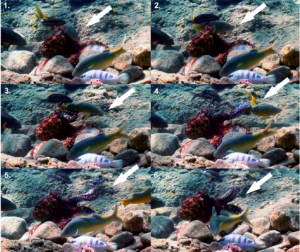
So, if you ever find yourself hunting with an octopus, make sure you share the riches!
I am a 2nd year Master’s student at the Memorial University of Newfoundland. I am researching the highly invasive species the European green crab, and the impact extreme weather events has on its population abundance and distribution.
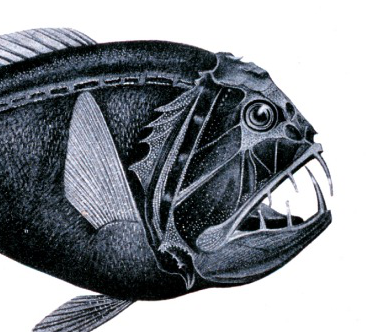
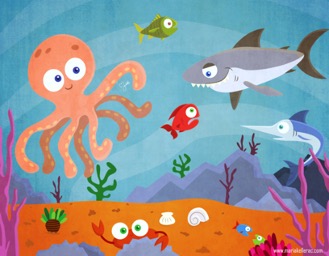
Very interesting, sure a lot of things a person doesn’t think of or know. Thanks for educating us.